monochrom, 3-10 (1994-1998) [German]
Filed under magazine | Tags: · art, conspiracy, copyleft, copyright, media, media art, media culture, net culture, philosophy, politics, science fiction, software, subversion, surveillance, tactical media, technology

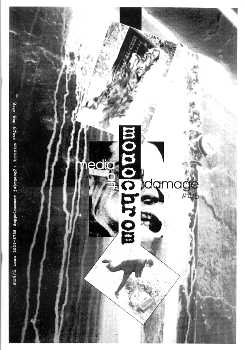
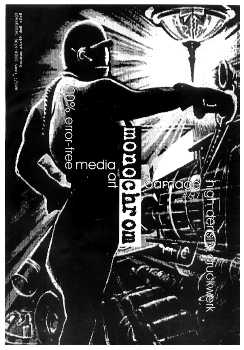
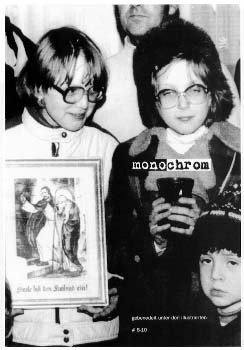
The mouthpiece of an international art-technology-philosophy collective founded in 1993, with its headquarters at Museumsquartier in Vienna.
Editor-in-chief: Johannes Grenzfurthner
Publisher Monochrom, Vienna
ISSN 1024-6738
Authors
Monochrom on Wikipedia
PDF (No. 3: media dings, 1994/95, 68 pp)
PDF (No. 4-5: media art damage, 1995/96, 104 pp)
PDF (No. 6-7: 100% error free high-density druckwerk, 1997, 112 pp)
PDF (No. 8-10: gebenedeit unter den illustrierten, 1998, 180 pp)
MIT and the Prosecution of Aaron Swartz (2013)
Filed under report | Tags: · activism, copyright, law, politics
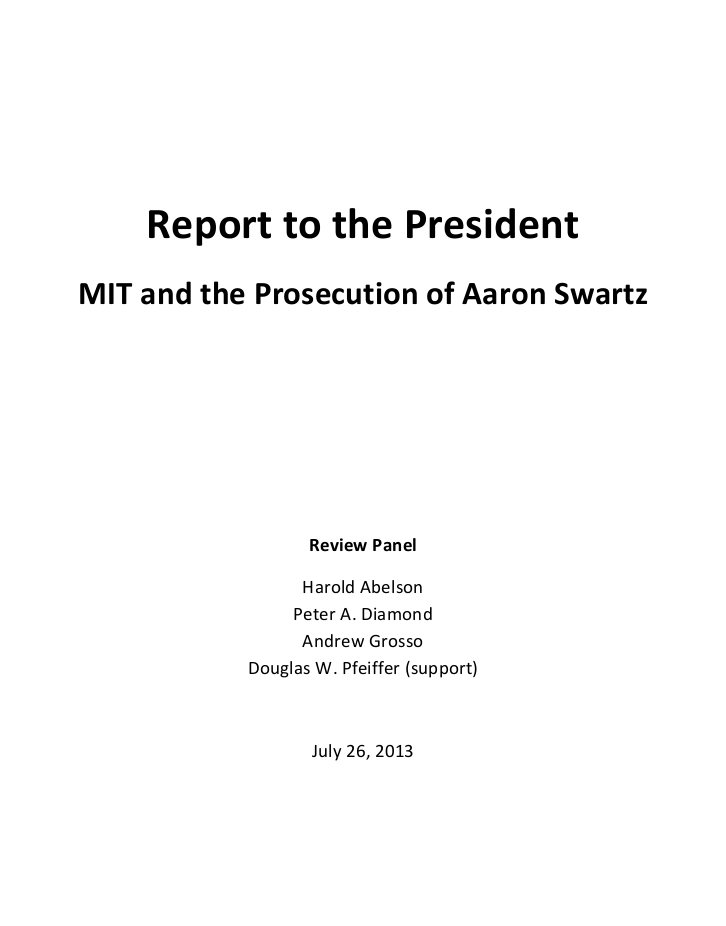
“In January 2013, MIT President L. Rafael Reif asked Professor Hal Abelson to lead a thorough analysis of MIT’s involvement in the Aaron Swartz matter, from the time that MIT first perceived unusual activity on its network in fall 2010 up to the time of Aaron Swartz’s suicide on January 11, 2013.
On July 26, 2013, Professor Abelson and his team submitted their report to President Reif.” (source)
“Abelson and his panel interviewed 50 people and reviewed 10,000 pages of documents to produce the report, about 3,000 of which were released in redacted form.” (source)
Publisher Massachusetts Institute of Technology, 26 July 2013
Review Panel: Harold Abelson, Peter A. Diamond, Andrew Grosso, Douglas W. Pfeiffer (support)
Creative Commons Attribution 3.0 Unported License
182 pages
via Marcell Mars
“MIT Report is a Whitewash” (statement by Aaron Swartz’s partner Taren Stinebrickner-Kauffman in response to MIT’s report, 30 July 2013)
“MIT Moves to Intervene in Release of Aaron Swartz’s Secret Service File” (Kevin Poulsen, Wired, 18 July 2013)
publisher
summary from the publisher
Peter Suber: Open Access (2012)
Filed under book | Tags: · copyright, open access, publishing
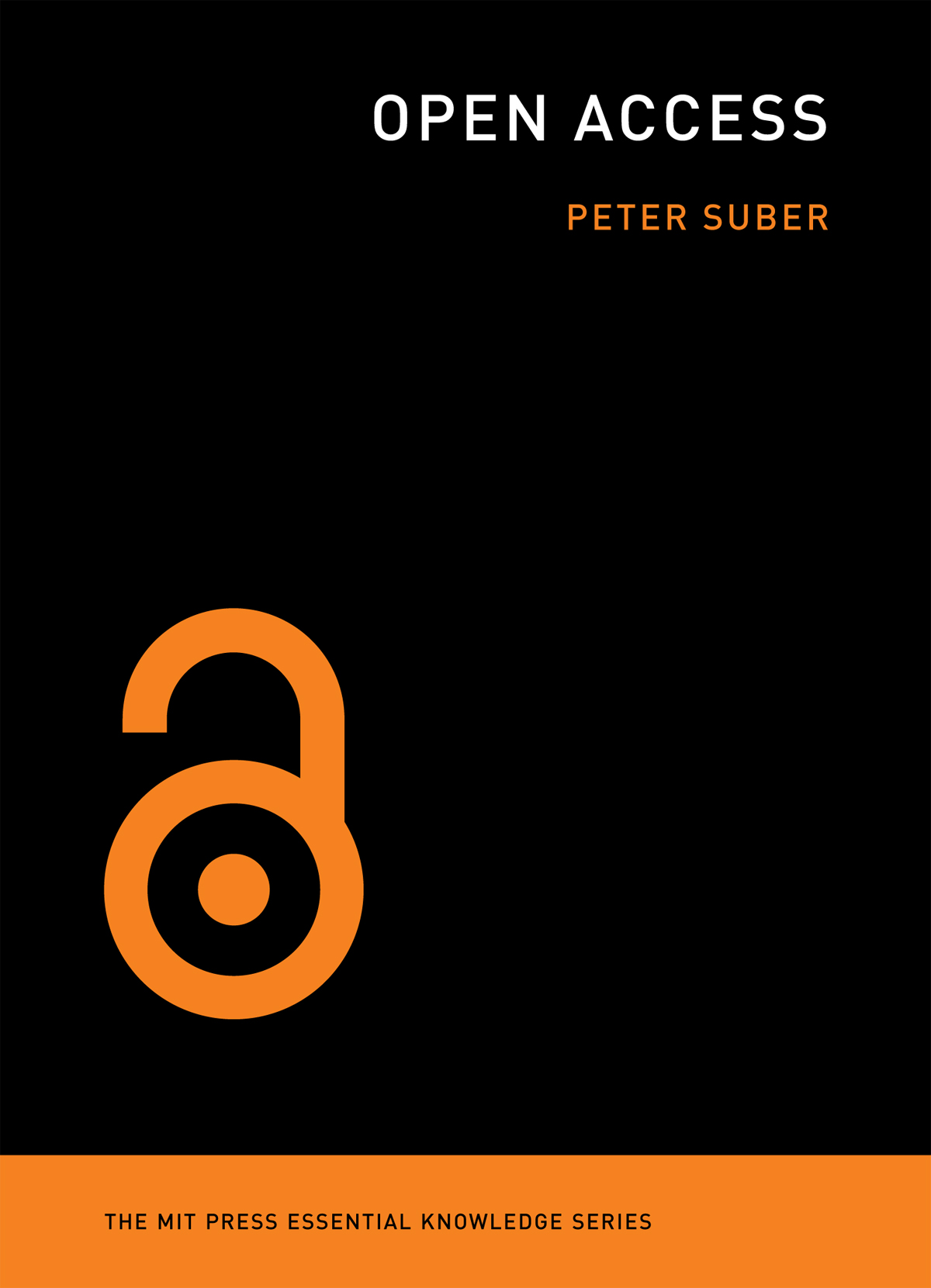
“The Internet lets us share perfect copies of our work with a worldwide audience at virtually no cost. We take advantage of this revolutionary opportunity when we make our work “open access”: digital, online, free of charge, and free of most copyright and licensing restrictions. Open access is made possible by the Internet and copyright-holder consent, and many authors, musicians, filmmakers, and other creators who depend on royalties are understandably unwilling to give their consent. But for 350 years, scholars have written peer-reviewed journal articles for impact, not for money, and are free to consent to open access without losing revenue.
In this concise introduction, Peter Suber tells us what open access is and isn’t, how it benefits authors and readers of research, how we pay for it, how it avoids copyright problems, how it has moved from the periphery to the mainstream, and what its future may hold. Distilling a decade of Suber’s influential writing and thinking about open access, this is the indispensable book on the subject for researchers, librarians, administrators, funders, publishers, and policy makers.”
Publisher MIT Press, 2012
MIT Press Essential Knowledge series
Creative Commons Attribution License
ISBN 0262300982, 9780262300988
242 pages
PDF (updated on 2016-12-23)
HTML, PDFs (added on 2018-9-23)

